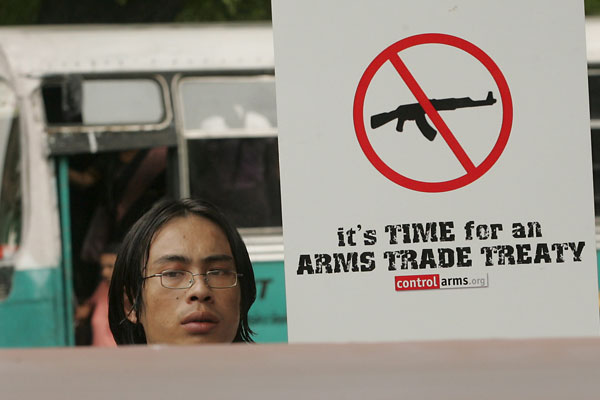ATT Could Stymie Arms Export Control Reform
Baker Spring /
Reform of the U.S. arms export control took a major step forward this week when the Departments of State and Commerce released final rules governing aircraft and gas turbine engines. However, the Arms Trade Treaty (ATT), which the Obama Administration voted to adopt at the United Nations earlier this month, threatens to scuttle this progress.
The U.S. regulates the export of weapons and dual-use commodities (i.e., items that have both military and civilian uses) very carefully. Indeed, we have what is acknowledged to be the world’s “gold standard” export control system. But the U.S. system is also overly complex. Several years ago, the Obama Administration embarked on an overdue reform of the U.S. system. But at the same time, it was negotiating the ATT, and these two efforts seem to have been working at cross purposes.
There are many reasons to dislike the ATT, but one of them, as Heritage analyst Ted R. Bromund has noted, it that it urges signatories to regulate a wide range of arms exports just as the U.S. reform process is trying to build higher walls around fewer items.
For instance, the new rules on aircraft and turbine engines transfer these items from the strict and inflexible Munitions List, maintained by the Department of State, to the more flexible Commodity Control List, maintained by the Department of Commerce. These and similar reforms are not designed to de-control the export of weapons and sensitive technologies. For example, they will not ease controls on exports to China.
The review process has been meticulous, involving the Departments of Defense, State, and Commerce; the White House; Capitol Hill; industry; allied governments; think tanks; and other interested parties. The specialists in the Administration who have worked in this complex area of federal regulation deserve to be commended for achieving this major milestone in the reform effort. Their work should not be frustrated by uncertainties created by the ATT.
The still-ongoing revision of U.S. rules governing the export of arms will maintain the status of our system as the most responsible arms export control system in the world. There is no need for the U.S. to sign or ratify the ATT. Instead, the U.S. should continue to reform its own export control system.

